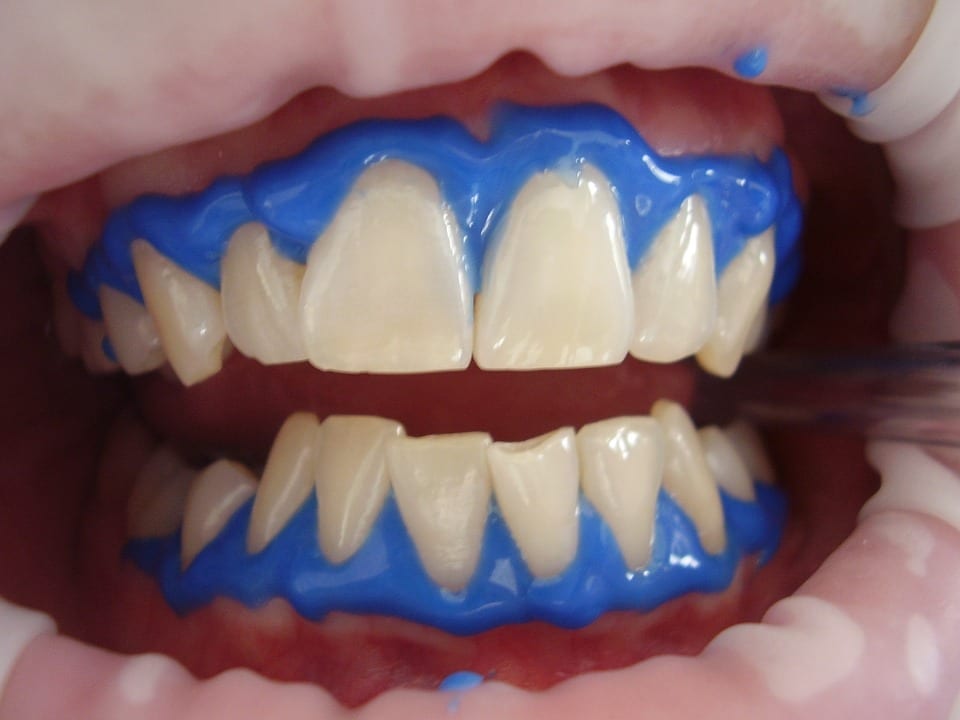Gum disease starts off as inflamed gums or what is known as gingivitis. A sure sign is if the gums feel sore, swollen or tender. When eating or brushing teeth the gums may bleed and infection may be present, while another symptom of gum disease is foul-smelling breath.
In our lifetimes as adults we are likely to experience gingivitis; however, the condition should not be allowed to worsen into gum disease. Within the UK it is estimated that almost half of adults have some form of gum disease. Some may be aware of it and others may not realise that their symptoms are that of gum disease.
Having regular dental check-ups, following recommended dental hygiene and enjoying a balanced diet and lifestyle are important to reducing the risk of developing gum disease. Early intervention and treatment will help to prevent the spread of the disease and preserve teeth and bone health.
Gum Disease Leads To Periodontitis
Initial symptoms of gum disease may not seem so alarming. However, as the disease progresses infection damages the periodontal ligament that anchors teeth to the jaw bone through the gums. Teeth become loose and fall out. Infection spreads through the root canals to other teeth causing further tooth loss.
If left untreated, teeth may be lost and the jaw bone may shrink resulting in pain, difficulty eating and speaking, and loss of facial volume. Infection spreads through the blood vessels in the dental pulp to the rest of the body and may cause nerve damage. As the mouth is so near the brain, neurological conditions may arise affecting concentration, memory and quality of life.
Gum Disease Raises Risk of Heart Disease
Infection within the blood vessels of the teeth and gums may spread through the blood supply – veins and arteries – causing clotting, obstruction, vascular narrowing and raised blood pressure. People suffering from progressive gum disease and periodontitis are at higher risk of vascular or blood diseases, heart attacks and stroke.
Blood infection also weakens the body’s immune system to combat simple illnesses like colds and flu. Pain in the mouth and gums may make eating difficult so that the person does not receive the nutrients their body needs to sustain healthy organs and body function.
Health Problems Caused by Gum Disease
Gum disease therefore leads to a range of health problems, such as:
- Tooth and bone loss
- Blood infection and raised blood pressure
- Heart disease
- Neurological conditions
- Auto-immune weakness
- Communication difficulties
- Malnutrition
- Ageing escalation
- Mental health
If left untreated, communication difficulties and malnutrition may arise due to tooth loss and oral pain causing an individual to be unable to chew food or pronounce words normally. Health conditions, such as anaemia or auto-immune weakness, diabetes and weight loss may occur. Infection makes the body vulnerable to illness, including infections or diseases of other organs, such as the liver and kidneys.
Vascular infections may also trigger migraine and neurological conditions requiring further treatment. Poor health due to gum disease causes the body to age prematurely. With bone and facial volume loss, the face appears sunken, wrinkled and tired.
An unhealthy body leads to an unhealthy mind trying to grapple with effects of illness and ageing. Individuals with deteriorating health due to gum disease struggle with low self-image, lack of confidence and in some cases, depression.
Treating Gum Disease
Therefore, it is vital that individual’s with signs of gum disease have dental check-ups and diagnosis as soon as possible for treatment to restore their oral health and return their bodies and minds to a better state of well-being.
Treatments for gum disease include tooth extraction, root canal treatment, dental implants and tooth restorations for a health set of replacement teeth that look and function as normal.






Leave a comment